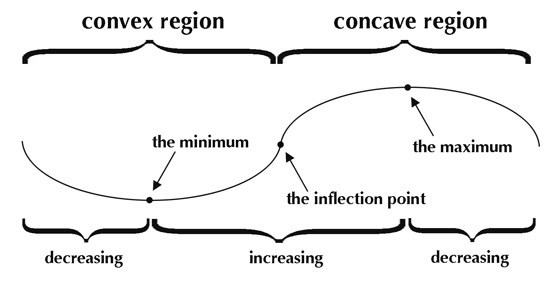f ′ ( x ) = 0 ⟺ Extremum ... right?
 f
(
x
)
=
(
x
2
−
1
)
n
+
1
(
x
2
+
x
+
1
)
,
n
∈
N
If this function has an extremum at
x
=
1
, what is/are the possible value(s) of
n
?
f
(
x
)
=
(
x
2
−
1
)
n
+
1
(
x
2
+
x
+
1
)
,
n
∈
N
If this function has an extremum at
x
=
1
, what is/are the possible value(s) of
n
?
This section requires Javascript.
You are seeing this because something didn't load right. We suggest you, (a) try
refreshing the page, (b) enabling javascript if it is disabled on your browser and,
finally, (c)
loading the
non-javascript version of this page
. We're sorry about the hassle.
2 solutions
@Cccc Dddd I think you've missed out an n + 1 in the first term.
How is that f'(x)=0 when x=0 ??
Log in to reply
f'(x) only needs to be equal to 0 when x=1, right? The function has an extremum at x=1, not x=0.
I think it's true for all values of n, since ( x 2 − 1 ) will be zero . zero doesn't care to the powers
The given function can be written in the form: ( x + 1 ) n + 1 ( x − 1 ) n + 1 ( ( x + 2 1 ) 2 + 4 3 ) . The first and the third factor are always positive on the interval ( − 1 , ∞ ) and f ( 1 ) = 0 . If the n + 1 were odd, f ( x ) would change its sign at 1, and then f ( x ) could not have a local extremum at x = 1 . If the n + 1 were even, then f ( x ) ≥ 0 for all all values of x close to 1, and therefore f ( x ) would have a local minimum at 1. So the answer is: n must be odd.
f ′ ( x ) = 2 x ( x 2 − 1 ) n ( x 2 + x + 1 ) + ( x 2 − 1 ) n + 1 ( 2 x + 1 ) = ( x 2 − 1 ) n ( 4 x 3 + 3 x 2 − 1 ) x=0 => f'(x)=0 , if n is odd then f'(x) changes its sign through x=0 x = 2 n + 1